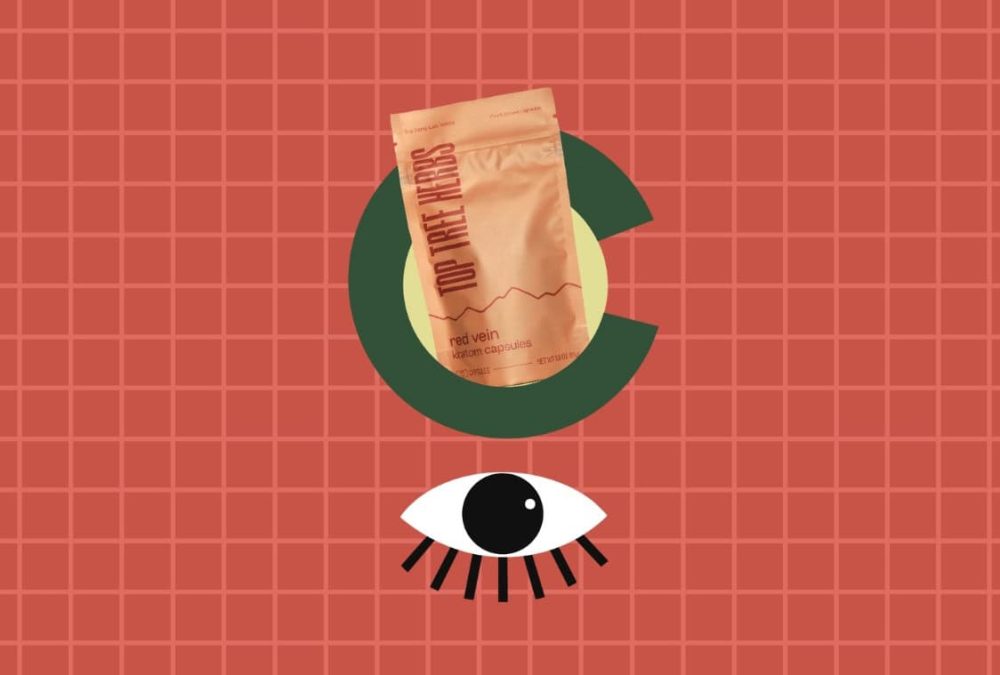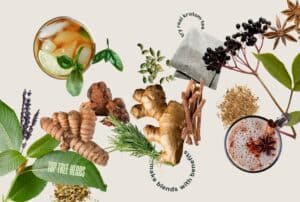We’re excited to give you an update from the front lines of kratom advocacy work and answer the question on your mind: is kratom legal in Colorado?
2024 Update: the Colorado KCPA officially passed in 2022, but because of delays (likely related to financing), it doesn’t go into effect until the summer of 2024.
Colorado Kratom Regulation History
On March 2, 2022, Top Tree Herbs’ co-founder Sam Weber testified in favor of the Kratom Consumer Protection Act (KCPA) at the Colorado State Senate. He was joined by the American Kratom Association and colleagues from the Colorado kratom industry.
The bill under discussion—Senate Bill 22-120—establishes a simple regulatory framework for kratom in Colorado. The Colorado version mirrors kratom regulations in the states that have already passed the KCPA—Nevada, Utah, Arizona, Oklahoma, and Georgia. It will mark an important change in Colorado’s kratom industry.

Today we’re going to describe the bill, share some details from the Senate hearing, and discuss kratom legality in Colorado. Let’s start from the beginning: what is the KCPA?
And if you’re here just to figure out if is kratom legal in Colorado? The answer is yes, kratom is legal in Colorado. If you live in Denver, however, there’s a ban on kratom sold for human consumption; and the cities of Parker and Monument have banned kratom sales, but not possession.
The Colorado Kratom Consumer Protection Act
What is the Colorado KCPA? In short, it’s a regulatory framework for kratom in the state. Kratom isn’t a controlled substance, so it doesn’t require the same sort of restriction as other products like cannabis. Instead, the Colorado KCPA focuses on two core areas: product testing and labeling.
The main purpose of the bill is to protect kratom consumers in the state. It would mandate that all kratom products first go through lab testing and are labeled correctly before being sold.
This means kratom must be tested for mold, heavy metals, and foreign materials, and the amount of mitragynine and 7-hydroxymitragynine (7-OH) in the powder must be reported on the product’s label.
When it comes to kratom alkaloids, the main concern is preventing vendors from altering or adding alkaloids to raw kratom without notifying consumers. By law, 7-OH can’t be more than 2% of the overall alkaloid percent found in raw kratom powder. The Colorado KCPA addresses these concerns.
Why Regulate Kratom?
Kratom is a natural product, which means safety standards are especially important. For starters, kratom comes from Southeast Asia. Many of these farms are not required to follow the same safety standards as in America. As such, businesses need to test products before they reach customer hands.
The goal is traceability, which means having total oversight of the supply chain. If you look at the legal cannabis market, for example, products are required to be tracked from seed to sale. Without product traceability, health officials can’t determine how contamination occurs, where contaminated products go, and if they need to initiate a recall.
The big issue with unregulated products is that business owners who want to cut corners are easily able to. Many don’t even realize the need for product testing. When businesses are more concerned about making money than keeping people safe, problems arise.
Above all, when it comes to kratom, the biggest concern is heavy metals. A couple of years ago, Dr. Oliver Grundmann conducted a study at the University of Florida that analyzed kratom products from shops in the Chicago area. They found microbes and unsafe levels of heavy metals in multiple products. This is exactly why we need good actors in the kratom industry. With proper testing and GMP processes, these products never would have made it to store shelves.
Microbes and heavy metals aren’t visible to the naked eye, so you can’t detect them in your kratom without laboratory testing. We support the Colorado KCPA to protect consumers against vendors that don’t understand these basic tenets of product testing.
So, what is the current status of the bill? And is kratom legal in Colorado?
Senate Bill 22-120: Current Status
The Colorado Kratom Consumer Protection Act is under consideration by the Senate Finance Committee. If passed, the bill will require all kratom vendors to register with Colorado’s Department of Revenue, which would have regulatory oversight of the industry.
The bill also defines what happens if any kratom vendors violate the new standards. The penalties start with a straightforward fine. If the issues continue, the Department can revoke the vendor’s ability to operate in the state.
According to the enforcement penalties section of the bill, “the department may revoke the registration of a kratom processor, order a kratom product to be permanently removed from sale, or prohibit a processor from reapplying for registration as a kratom processor for a period of up to three years.”
You can read the rules in their entirety in section 44-15-104 Part 2B of the bill, available here.
Let’s answer the question of the hour: did CO pass the KCPA? The short answer is no; the Senate Committee has deferred voting on the bill in order to iron out a few proposed amendments, such as allowing individual cities to create more restrictive rules and raise the age restriction from 18 to 21 and over. However, we’re confident the state Senate will pass the bill in the coming weeks.
April 27th Update: Top Tree went to the Capital again, this time with co-founder Soren Shade in tow as well. After giving yet more impassioned speeches and testimony to kratom, the House committee pushed making a decision down the road. They tossed the baton to the Finance Committee to handle. So far, there is no word on when the Finance Committee will deliberate.
Working With The American Kratom Association
The reason we have congressional hearings is to give the public an opportunity to speak with legislators. This helps public officials get a better understanding of how a bill will affect the community and gives them an opportunity to learn more about the issues at hand. To ensure everyone has an opportunity to speak, hearings follow a specific process, like a courtroom trial.

It starts with a basic introduction of the topic, often done by the state representative who is introducing the bill. After that, witnesses speak to the committee members, starting with the opposing party. At our hearing, there was one opposing witness: a public health official who gave a virtual testimony against the regulation of kratom in Colorado.
Essentially, the official repeated the same inaccurate information about kratom we’ve all heard a million times. As frustrating as it is to hear people peddle anti-kratom misinformation, the Colorado kratom community easily countered her points. They spoke next.

Thanks to the work of the American Kratom Association, we had about 15 witnesses testify in support of kratom regulation in Colorado. First were Mac Haddow, Senior Policy Fellow on Public Policy at the AKA, and Dr. Jack Henningfield, the Johns Hopkins researcher who authored the recent 8-factor analysis of kratom.
In addition to giving a basic overview of kratom’s safety profile, they explained how the bill protects kratom consumers. Haddow emphasized that the real issue is contaminated kratom products, not raw kratom leaf.
After framing the need for common-sense kratom regulations, the Colorado kratom community took the floor.
The Colorado Kratom Community
This is where the day got really interesting. We heard from kratom business owners, passionate kratom consumers, and employees from the top vendors in the state. Our community did an amazing job, especially the consumers who shared powerful stories about how kratom has helped them get their life on track.
They explained how kratom helps them meet their daily adult responsibilities, as well as improve their overall well-being. It was obvious that these stories had the biggest impact on the Senators, who were curious, engaged, and responsive.
The three expert witnesses from the industry—the owner of Laughing Lion Herbs, the owner of SK Kratom, and our founder, Sam Weber—helped the Senators see that there are good kratom vendors in Colorado. Our willingness to work with the state didn’t go unnoticed. The Senators asked if the bill addressed the core issues in the market, and all three business owners confirmed it did.
After a few hours of testimony and questions, the Senators seemed to really understand the need for regulations. Even though they postponed the vote, it was a great day for kratom in Colorado. The few small issues that legislators still need to work out—such as deciding if the legal age for purchase should be 18 or 21—should be relatively easy to resolve. We expect to see the bill passed in the coming weeks.
Kratom Bans in Colorado
Three cities in Colorado have passed kratom bans: Denver, Parker, and Monument. Denver is a special case, because kratom is legal, but with one caveat. The public health department wants to label kratom as “not for human consumption.”
It’s a backward way to approach to the issues around contaminated kratom products. Once the KCPA passes, we’ll reengage the Denver Department of Public Health & Environment (DDPHE) and work together on a better solution.
We’ll have a blog post in the coming weeks that digs more into the Colorado kratom bans. Each one has an interesting story. The goal today was to introduce you to the Colorado Kratom Consumer Protection Act, explain how we’re doing our best to help make kratom safe and available in the state, and give a huge thank you to everyone who participated.
Whether it’s a donation to the American Kratom Association, attending a hearing in person, or asking your local representative to support kratom in your city, we couldn’t keep kratom legal without your help.
It’s still unbelievable how far certain government officials will go to oppose kratom. Thankfully, their efforts can’t overshadow millions of passionate kratom consumers who know the truth and are proud to share it.
We all know more kratom research is needed, but banning kratom and making research more difficult isn’t the solution. Thankfully there are many Colorado legislators who understand this and are in support of the CO KCPA.
We’re unbelievably grateful for those willing to stand up and protect our right to choose how we maintain our health and enjoy our lives.
The Future of Kratom
It really is a great time for kratom consumers. After years of regulatory uncertainty, threats of scheduling and international bans, we finally have the data to back up what we knew anecdotally: kratom is safe and effective, and lots of us love it.
Thanks to the hard work of so many passionate kratom consumers and advocates, we’re finally on the path to normalizing kratom culturally and legally. In today’s post, we broke down the recent developments surrounding kratom regulations in Colorado. In the coming weeks, we expect to see Senate Bill 22-120 passed. This will be a momentous accomplishment for the entire Colorado kratom community.
As a company founded by long-term kratom consumers, we’re proud to contribute to the fight to keep kratom legal. The last few years have presented a lot of challenges, but it finally feels like real progress is being made. We hope this post helped you learn a bit more about why we support kratom regulations. As always, we’re here if you have any questions.
If you’re interested in learning more about the kratom bans in Colorado, we’ll have more information coming soon. Until next time, thank you for the continued support, and cheers to better brewing!





